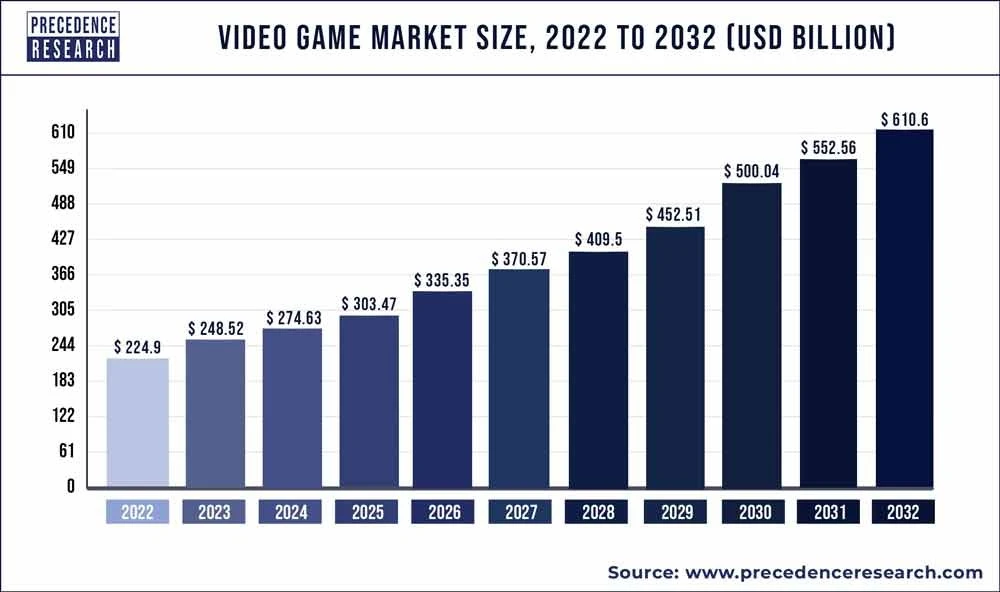Latest .NET Development Trends: You Must Know In 2024

As we head into 2024, the .NET framework remains at the forefront of technology with breakthroughs that reimagine how developers develop software. This year, we have exciting .NET development trends that will improve developer productivity, application performance, and project deployment across multiple platforms.
These developments are crucial, from ML.NET for building machine learning – capable applications to .NET MAUI for creating cross-platform experiences. Additionally, Blazor’s support for large web applications and the inclusion of industry-leading security protocols are driving new standards in the space. This blog explores the top 10 .NET trends for 2024, highlighting the technologies reshaping the future of development in the .NET ecosystem.
The Need To Know .NET Custom Software Development
Companies that want to remain ahead of the curve in the digital age need to know .NET custom software development. Three advantages stand out:
Tailored Solutions: .NET custom software development enables businesses to build software solutions that meet their specific business needs and goals. This customization ensures the software meets the company’s workflows, processes, and goals, resulting in efficiency and productivity.
Scalability: .NET enables companies to develop scalable applications that adapt to their business. This scalability is essential for handling increased user demand, operations growth, and addition of features and functionality as the company grows its product portfolio or enters new markets.
Security: Today’s connected world demands security, and.NET provides effective security features and procedures to protect sensitive data and defend against cyber threats. .NET custom software development helps companies maintain the highest level of security for their software applications, granting users and stakeholders the confidence to use and interact with it.
Table of Contents
- The Need To Know .NET Custom Software Development
- ML.NET and AI Integration
- .NET MAUI for Cross-Platform Development
- Blazor and WebAssembly
- Progressive Web Apps (PWAs) .NET Development
- Enhanced Security Measures
- Cloud-Native Development with Azure
- Game Development with .NET
- IoT and .NET Development
- No-Code/Low-Code Development
- Containerization and Microservices .NET Development
- Conclusion
ML.NET and AI Integration
As .NET embraces artificial intelligence, ML.NET becomes a major contributor to accelerate machine learning adoption within .NET ecosystem. This enables developers to integrate custom machine learning models into applications for automation and smart features. ML.NET can also provide applications with advanced capabilities like predictive analytics (modeling the future behavior and trends) and automation of mundane tasks (increasing efficiency and accuracy). This trend is a testament to .NET’s flexibility and growth but also reflects an overall industry trend towards more intelligent, data-driven app development. Using ML.NET, developers can create more proactive solutions based on data – informed decisions and deliver better, more personalized experiences.
.NET MAUI for Cross-Platform Development
Designed upon the foundation of Xamarin.Forms, .NET Multi-platform App UI (MAUI) is a significant step forward in cross-platform development capabilities. This groundbreaking framework allows programmers to develop and deploy applications on Windows, macOS, Android, and iOS from a single shared codebase. This consolidation reduces the number of separate sets of code needed for development, reducing errors and maintenance issues. With .NET MAUI, developers can leverage their .NET skills to build hybrid apps that increase productivity and streamline workflow. By integrating .NET development services, organizations can further enhance their capabilities, utilizing expert support to optimize app performance, ensure scalability, and maintain robust security across all platforms.
This approach reduces development time and delivers a consistent user experience across all platforms – important for sustaining user engagement in today’s device ecosystem. As .NET MAUI evolves, it will become a foundation for developers needing to develop performant, scalable, and maintainable applications.
Blazor and WebAssembly
Blazor is changing the web development landscape by allowing developers to create rich, interactive web user interfaces using C# instead of JavaScript. This change is important as it frees developers to utilize their existing .NET and C# skills, thereby lowering the learning curve and boosting productivity. Together with WebAssembly (Wasm), Blazor allows web applications to run on near-native performance. Wasm is a low level, assembly-like language which can be implemented in the web browser at a speed near native applications, significantly boosting the performance and capability of web apps. This combination improves processing speeds and also allows more advanced and graphic-intensive applications to run smoothly in browsers. As these technologies develop, they’ll redefine the skills of web applications by offering tools to develop responsive, rapid, and robust web solutions. To fully capitalize on these advancements, companies might consider to hire Blazor developers. These specialists can help leverage Blazor’s capabilities to enhance UIs with interactive features without relying heavily on JavaScript, streamlining the development process and boosting performance across various platforms.
Progressive Web Apps (PWAs) .NET Development
Progressive web Apps (PWAs) built with .NET have simplified the process significantly, enabling Web applications to behave more like native app experiences. Using Blazor in conjunction with WebAssembly, PWAs can be designed to run offline, providing a seamless experience regardless of internet connectivity. This is especially useful for areas with unreliable internet connections or for applications that require persistent availability. Blazor combined with WebAssembly ensures these apps run fast like native apps while increasing user engagement by providing app-like features like push notifications and background syncing in the web browser. This fusion is making PWAs a compelling choice for developers looking to deliver better user experiences without app store submissions, thus expanding reach and simplifying maintenance.
Enhanced Security Measures
Security is a top priority in today’s digital world, and .NET continues to invest in strengthening defenses within its framework.. NET security is reflected in its suite of built-in features to protect applications against emerging threats. This entails secure user authentication and authorization, threat detection and mitigation capabilities, and a dynamic patching policy that reacts quickly to emerging security vulnerabilities. These improvements are critical for developers and organizations seeking to defend their apps against evolving cyber threats to maintain system resilience against attacks and keep user data secure. This proactive security approach helps maintain trust and compliance, which are important for businesses in all regulated industries.
Cloud-Native Development with Azure
The move toward cloud-native application development has become more prominent, and .NET developers are taking advantage of Azure’s resources for application scalability and resilience. By architecting .NET applications for cloud environments, developers can benefit from Azure’s various services, including automated scaling, load balancing, and integrated monitoring, which collectively enhance application performance and reliability under load. This cloud-native transformation is not about migrating legacy applications to the cloud, but rethinking application architecture, development and management through microservices, containers and serverless.
These technologies enable administrators to manage and deploy applications as collections of independently deployed, modular components that operate together to achieve high availability and low resiliency. This approach enables businesses to react faster to market changes and customer needs through faster updates, better team collaboration between development teams and reduced operational risks associated with physical hardware dependencies.
Game Development with .NET

The popularity of .NET for game development is expected to rise tremendously year on year and originates from its feature rich capabilities that allow developers to develop rich, interactive gaming experiences. Supporting many different platforms, developers can use .NET to create games for Windows, Mac OS X, mobile devices, and incorporate VR and AR. This cross-platform resourcing is vital in a gaming industry that emphasizes accessibility and cross-platform usage. Furthermore, the .NET framework’s interoperability with leading gaming engines such as Unity provides developers with tools and libraries for rendering large graphics, realistic physics, and interactive games. These integrations allow for stunning and immersive environments, which are crucial for modern gaming experiences that engage players. The robust .NET architecture also ensures high performance – with efficient memory management and asynchronous programming – essential for a consistent gaming experience and responsiveness across devices.
IoT and .NET Development
The .NET interoperability with IoT solutions has been greatly expanded, enabling more complex and interconnected applications. .NET offers a complete set of libraries suited for IoT applications, including real-time data processing and communication with sensors and devices. This enables developers to produce applications which not only gather data from a great sensor network but also perform advanced analyses and actions on the real time inputs. This is especially relevant for smart home systems, industrial monitoring and health devices where timely and precise data processing can improve operational efficiency and safety. In addition, .NET supports IoT with platforms such as Azure IoT Hub, which provides additional tools for device management, secure communications, and elastic deployments. This support enables developers to build cost-effective and scalable IoT solutions to support growing devices networks.
No-Code/Low-Code Development
The emergence of no-code and low-code platforms within the .NET community represents a move towards easier and more accessible application development. These platforms allow both developers and non developers to develop applications using very little traditional coding, substantially reducing development complexity and development time. This approach is especially beneficial for rapid prototyping applications so organizations can develop and react to market demands more quickly than ever. These platforms provide visual programming environments and drag-and-drop interfaces that allow developers to build apps that still utilize .NET’s full backend power, including data access and security features without coding skills. This means reduced development time, operational expenses, and time to market – key metrics for companies looking to keep in front of the curve in the digital age. These platforms also democratize app creation enabling a broader audience to take part in the development cycle, encouraging innovation and collaboration across businesses.
Containerization and Microservices .NET Development
Containerization and microservices architecture adoption in .NET ecosystem is rapidly becoming the preferred way to deploy applications in e-commerce and high demand environments. This architectural model decomposes applications into microservices that run each application process as a separate service. This separation enables more granular scaling, management, and updating of components without affecting the entire application resulting in better system resilience and efficient use of resources. gRPC is an important concept of microservices which facilitates lightning-fast communication between microservices and applications.
Containerization, with tools like Docker, encapsulates these microservices within their own containers with all the executables, binary code, libraries and configuration files required for the service to operate in any environment. This consistency solves the “it works on my machine” problem, ensuring predictable deployments and minimizing environment-specific overhead.
For .NET applications this means better agility, where new features can be deployed faster and more safely. Containers also enable easier dependency management, demand – independent scaling of services, and fault isolation. Furthermore, in e-commerce where demand can fluctuate highly dynamically, dynamic resource management becomes extremely valuable to reduce costs in low traffic periods and to smoothly scale up during peak demand periods. Such modularity and flexibility are required for high availability and performance in such critical industries.
Conclusion
As we dive into 2024’s transformative trends for .NET, we see that the .NET ecosystem remains a vibrant and powerful resource for developers looking to build innovative applications. From ML.NET boosting AI capabilities to .NET MAUI and containerization providing robust, scalable solutions, these trends represent a paradigm shift towards more agile, secure and responsive software development.
For those who wish to utilize these advancements, hiring the right .NET development company is important. A seasoned .NET development company can integrate these new technologies into your projects to keep your applications current with the latest trends while also being performant and scalable. Whether you want to modernize business applications or build new digital solutions, hiring a professional team will help you navigate the modern .NET development landscape and accomplish your strategic objectives.
WireFuture stands for precision in every line of code. Whether you're a startup or an established enterprise, our bespoke software solutions are tailored to fit your exact requirements.
No commitment required. Whether you’re a charity, business, start-up or you just have an idea – we’re happy to talk through your project.
Embrace a worry-free experience as we proactively update, secure, and optimize your software, enabling you to focus on what matters most – driving innovation and achieving your business goals.






